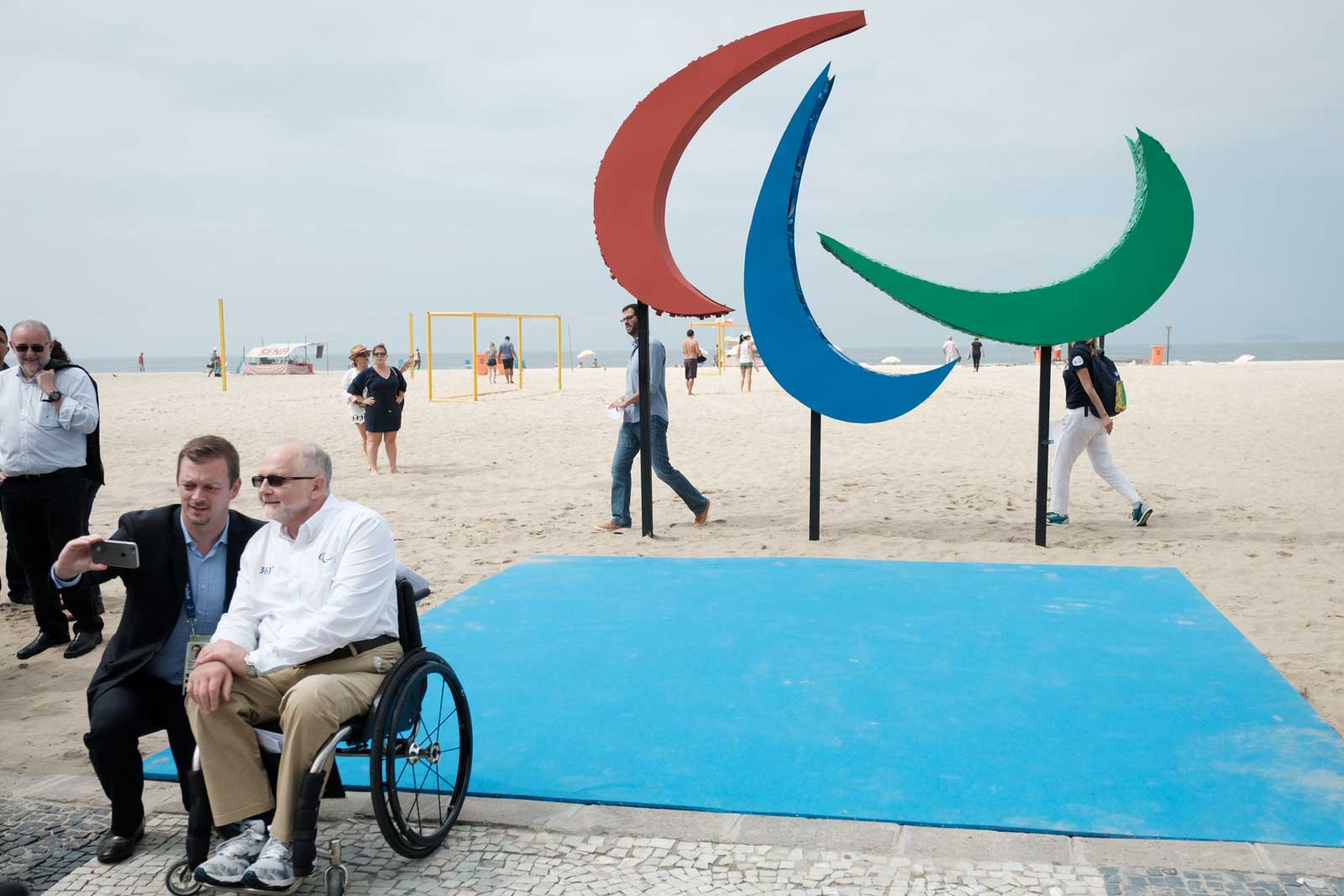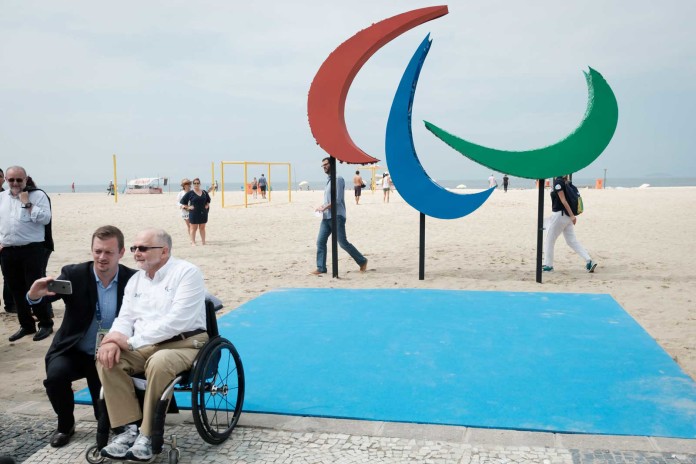RIO DE JANEIRO – Navigating his wheelchair over tough terrain, Marco Aurelio Giglio pulls off heroic feats of athleticism every day in Rio de Janeiro.
But he is not a Paralympic athlete. He’s just an ordinary disabled Brazilian trying to get around the city.
Giglio, 40, faces a daily commute of one kilometer (more than half a mile) in his electric wheelchair, which he has used since an accident left him paraplegic 21 years ago.
It is an obstacle course of potholes, broken sidewalks and jutting tree roots, with few accessible street crossings along the way.
Still, he does whatever he can to avoid taking the bus, which he says is even worse.
“I don’t feel safe on those buses,” he said categorically.
Some 4,300 athletes from 161 countries are in Rio this month for the Paralympic Games, which open Wednesday.
Like last month’s Olympics, it is the first time the Paralympics have been held in South America.
That is putting Brazil in the spotlight, in a way that is making public officials uncomfortable and that disabled Brazilians say is long overdue.
Rio has “terrible accessibility,” said Teresa Costa Amaral, head of a local organisation for disabled people’s rights.
The poor condition of sidewalks is only the beginning.
Pedestrian crossings lack audio signals for the visually impaired. Wheelchair ramps are nonexistent or so steep they make users break a sweat. Bus ramps are often broken, or the drivers don’t know how to use them. Taxis refuse disabled clients.
“Less than half the city has been made accessible. And what little there is serves no purpose. Because you can’t do accessibility halfway,” said Amaral.
Britain, where the Paralympic movement was born, set the bar high at the London Games four years ago.
The 2012 Paralympics sold more tickets, drew more viewers and brought in more revenue than any previous edition.
Nearly three million tickets were sold, besting the 2008 Beijing Games by around a million. And the city won plaudits for its accessibility.
That has put the pressure on Brazil, where around six per cent of the population of 200 million is disabled.
Brazilian authorities have bristled at criticism over a lack of accessibility.
“No city in the world that has hosted the Games was completely accessible, not even London. I think Rio has gotten a lot better,” said the president of the Brazilian Paralympic Committee, Andrew Parsons.
But Amaral insists that London and indeed most European cities are far better for the disabled.
Rio has made improvements for the Games, but only to its renovated and expanded subway system, she told AFP.
That handles only four per cent of the population in this sprawling, chaotic city of heartbreaking beauty and staggering inequality.
Another 37 per cent gets around by bus.
Ironically, Rio’s disabled face a daunting challenge getting to the Paralympics, which will be held at several venues across the city.
The Olympic Park, the main hub, can be reached relatively smoothly via the new subway line or Bus Rapid Transit system, the city’s most modern.
But the other venues, the Olympic Stadium and Deodoro Park, are in hard-to-reach areas on the city’s north side, served by an aging suburban train system that Amaral says is not sufficiently accessible, despite pre-Olympic upgrades.
During the Olympics, Rio declared public holidays, alleviating the daily transport crush. But that is not the case for the Paralympics.
And the city is expecting big crowds: 1.5 million tickets have been sold, and organizers say they expect to sell the remaining million.
Giglio said he hopes to make it to at least one event.
“We’ll see how we get there,” he said with a sigh.







